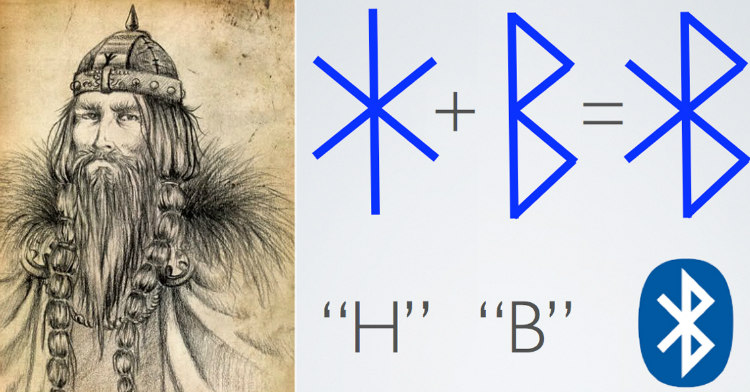25 Interesting Words Derived from the Names of People Throughout History
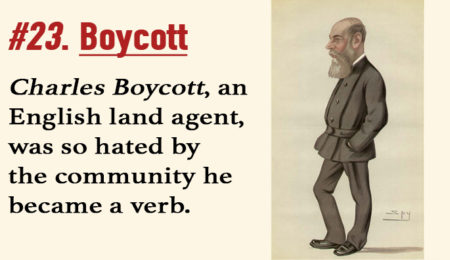
English is a language that is rich in eponyms, words that are derived from the names of people who are fictional, mythical or real. These words could represent philosophies, adjectives, discoveries, inventions, places, objects, etc. and the people they were named after often have interesting stories. Here are 25 such great words derived from names of people whose stories are so peculiar and significant that they left a long-lasting impression on the world.
1 Bluetooth
A wireless technology used to connect devices. Named after the King of Denmark and Norway, Harald Bluetooth, who united clashing Danish tribes into one kingdom in the 10th century.
In 1997, the idea of using the name of the king of Denmark was proposed by Jim Kardach who developed a system that allowed mobile phones to communicate with computers. He was reading a book called The Long Ships, by Frans G. Bengtsson, which is a historical fiction about the Vikings and King Harald Bluetooth, and got the idea that Bluetooth technology does just what the king did, unite the communication protocols into one universal standard. The logo for Bluetooth is a merging of two Nordic runes that are actually Harald’s initials. (source)
2 Bowdlerize
To remove material considered improper or offensive, but often making the source less effective. Named after Thomas Bowdler who published an “appropriate” version of Shakespeare meant for women and children.
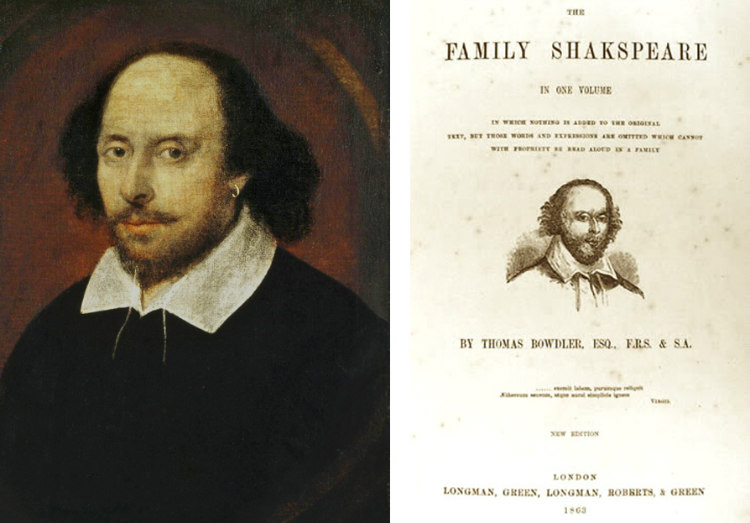
The Bowdler’s The Family Shakspeare was first published in 1807 and contained 24 of the plays with the censorship done by his sister Harriet. The spelling “Shaksspeare”, that was used by Bowdler, was changed in the later editions during the mid 19-century to “Shakespeare”. Though these censored editions were criticized for being a negative example, Bowdler’s editions made it easier for Shakespeare to be taught to wider and younger audience. (source)
3Â Sideburns
Part of facial hair grown on either side of the face as a continuation of the hairline but shaved over the chin. Derived from the last name of Ambrose Burnside, an American soldier, inventor, and industrialist, who wore such a style of facial hair.
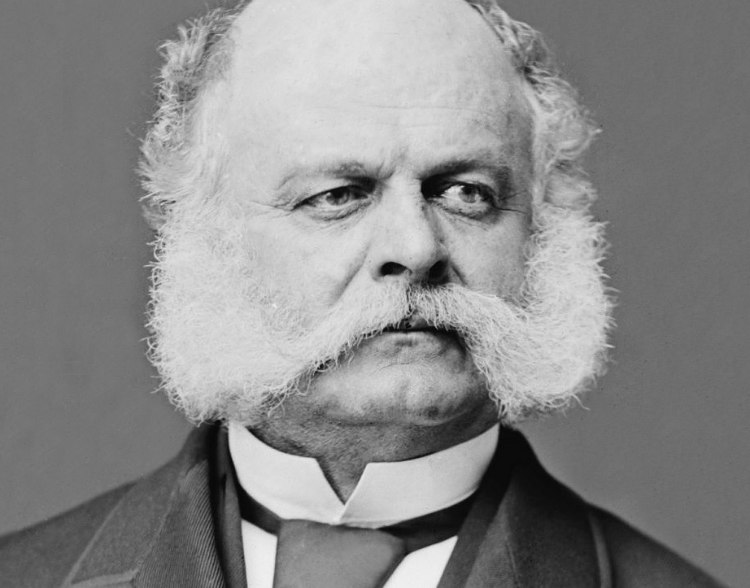
Ambrose Burnside was popular both in army and politics, and he maintained his relationships by remembering everyone’s name and smiling a lot. However, he was not that popular when it came to military and was thought not suitable intellectually and emotionally to take up high command. He was also noted for his unusual facial hair which continued from his hairline and joined his mustache, but with the chin clean-shaven. (source)
4 Chauvinism
To show excessive fanaticism or partiality towards a group while being prejudiced or hostile against another one. Named after a French soldier, Nicolas Chauvin, who was a fanatic and blindly devoted Bonapartist.
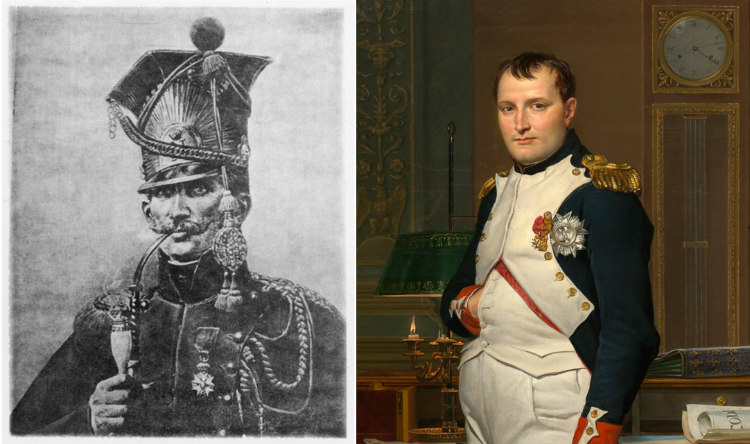
According to the legend, Chauvin was badly wounded in the Napoleonic wars and received a meager pension to live on. After Napoleon’s abdication, he stayed blindly devoted to his cause despite the unpopularity of Bonapartism during Bourbon Restoration of France. This extreme devotion by him, in spite of neglect by his faction and harassment by its enemies, started the use of this word. Since then, the term chauvinism evolved to mean fanatical devotion towards a group and hostility against others, and in contemporary English to mean a stance that people of one gender are better than those who belong to the opposite gender. (source)
5Â Casanova
Someone with a passion for women and has many lovers. Named after Giacomo Casanova, who was famous for his complicated affairs with women.
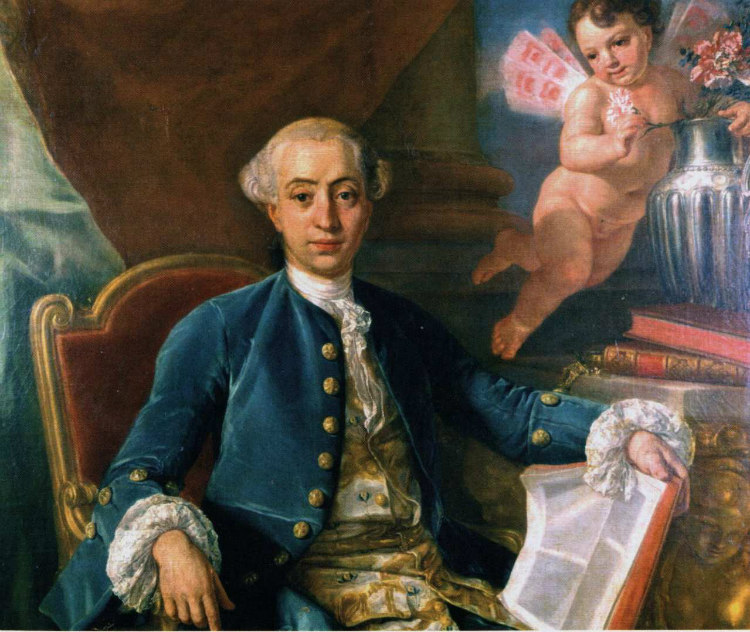
Casanova is perhaps the most famous and easily recognized eponym. Giacomo Casanova, who is an Italian adventurer and writer, often writing under many fictitious names. His memoir, Histoire de ma vie (Story of My Life), is considered as one of the best sources of the 18th-century European social life. One of the topics he discusses in his memoirs is his adventures with as many as 120 women and girls, and there are vague mentions of male lovers as well. (source)
6 Draconian
Laws and rules that are very harsh and severe. Named after Draco, a democratic Athenian legislator from 7th century BC, who made harsh laws that the citizens were not even aware.
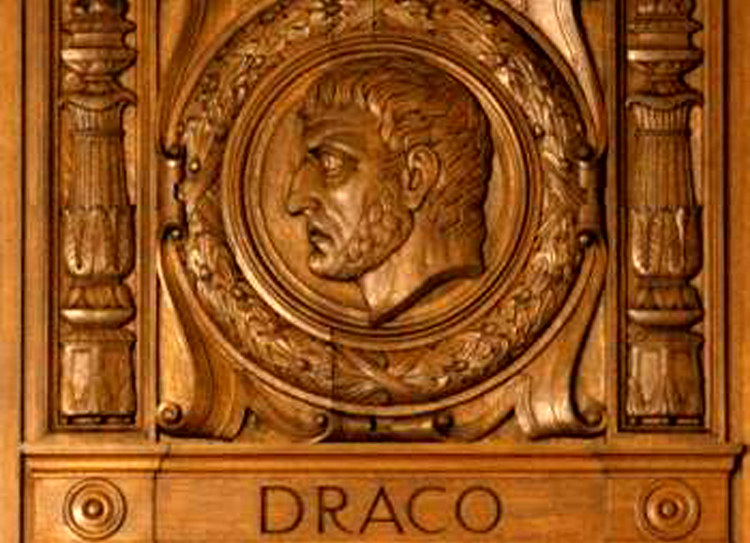
Ironically enough, Draco was the first democratic legislator of Athens, whom the Athenian citizens wanted to be the lawgiver. He replaced the existing oral law and blood feud, and the laws he laid down came to become the first written constitution of Athens. His laws imposed slavery on debtors with a status lower than that of creditors and death penalty on minor offenses such as stealing cabbages. Plutarch says “Draco said that these lesser crimes deserved the death penalty and he had no greater punishment for more important ones.” (source)
7 Guillotine
A beheading machine with a huge blade that slides vertically. Named after Dr. Joseph-Ignace Guillotin, a French physician, who proposed its use for a quick and painless execution.
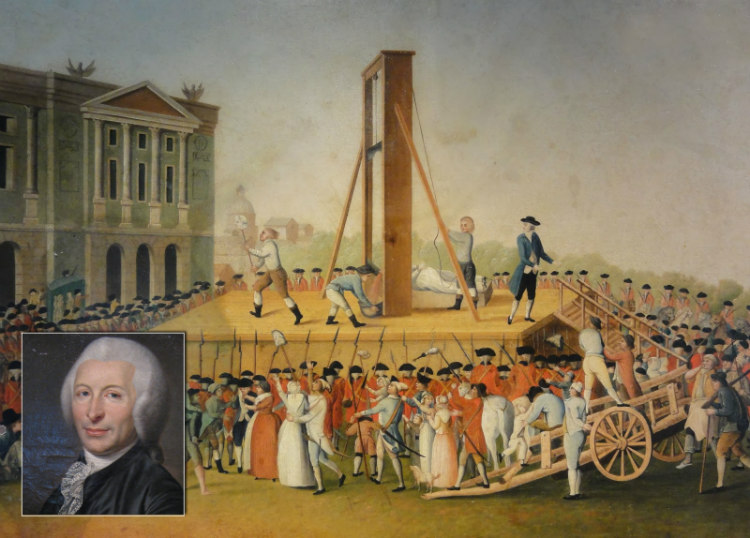
Dr. Joseph-Ignace Guillotin was a French physician, politician, and freemason. Guillotin was always opposed to giving death penalty as a punishment and proposed the use of a simple mechanism to decapitate the criminal. Decapitation was usually reserved for nobility using an ax or sword, while the common people were hanged. Guillotin hoped that establishing a fair system where the only capital punishment was done by mechanical decapitation, thus, it would help the public appreciate their rights, and also hoped that such a penalty would one day be abolished. He tried to make the executions more private as well. The actual inventor of the guillotine, however, was not him, but another man named Antonie Louis. (source)
8 Leotard
A stretchy one-piece garment worn by gymnasts, figure skaters, circus performers, and other such artists. Named after Jules Léotard, a French acrobat who popularized it.

A French acrobat and aerialist developed the art of trapeze. He was the son of a gymnastics instructor and was meant to become a legal professional after passing his law exams. But he began to start experimenting with trapeze bars at the age of 18 and later joined the Cirque Napoleon. He invented the one-piece knitted garment, which he actually called maillot, to suit the safety and agility concerns of the artists. (1, 2)
9 Luddite
Someone who is opposed to industrialization and new technologies for fear of losing their jobs. Named after Ned Ludd who allegedly destroyed two stocking knitting machines, thus becoming a symbol for others.
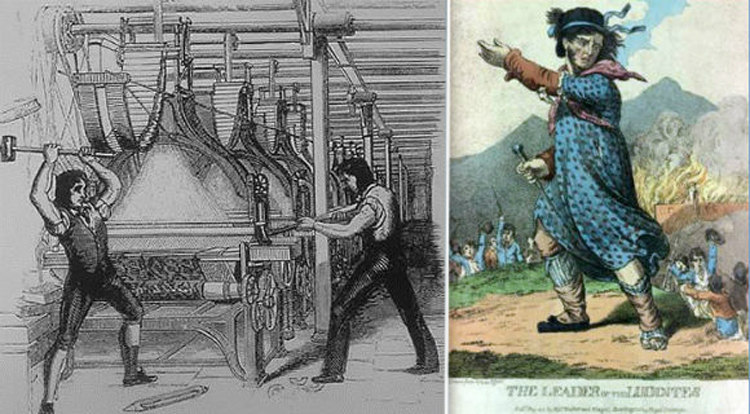
The Luddite movement started during the harsh economic climate of Napoleonic wars when the working conditions in textile factories became difficult. The Luddites mostly objected the increased automation of textile industry which threatened their jobs. It also threatened the livelihoods of skilled workers as it allowed the owners to hire less skilled people for the work at cheaper wages. The movement began on March 11, 1811, when handloom weavers burned mills and factory machinery, and textile workers destroyed the industrial equipment. The name Luddite has uncertain origins with a popular belief that the movement started with Nedd Ludd, whose name evolved into General Ludd or King Ludd, and was thought to live in Sherwood Forest like Robin Hood. (source)
10 Lynching
Execution of an alleged offender by a mob or a group without a legal trial. Named after Charles Lynch, an American Revolutionary and Virginia planter, who incarcerated loyalist supporters of the British even when he didn’t have proper jurisdiction.
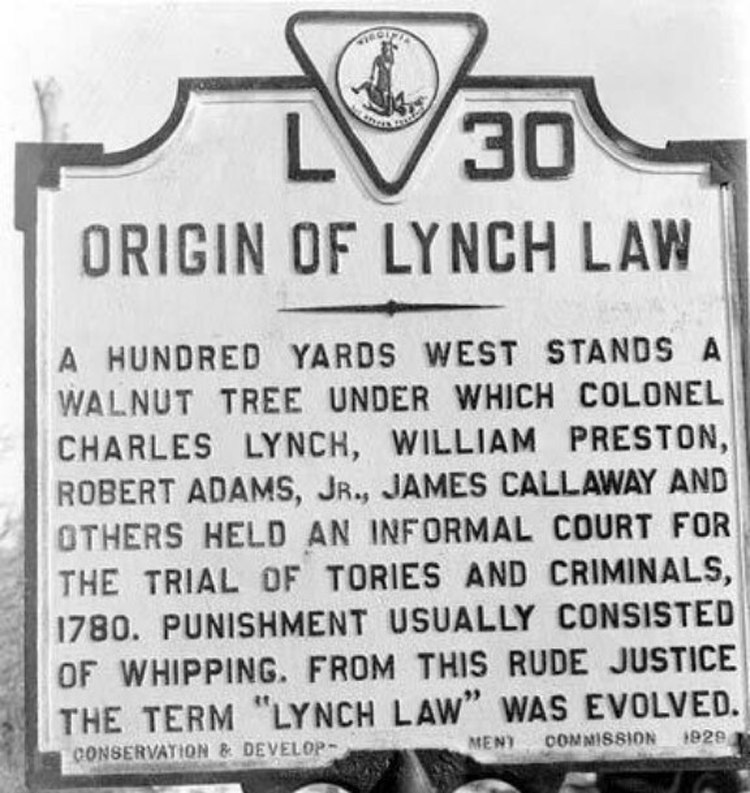
During the American Revolution, a Virginia Quaker named Charles Lynch headed a county court that imprisoned British loyalists for up to one year. He claimed that this was war necessity even though he had no proper jurisdiction. He was even able to persuade the Congress of the Confederation to exonerate him and his associates. This, however, gave rise to a controversy and the term “Lynch law”, which came to mean punishment without a trial, even though no execution was ever performed. (source)
11 McCarthyism
The practice of making unfair accusations or allegations of treason without proper evidence. Named after Republican US Senator Joseph McCarthy, the term was used as a criticism of his anti-communist actions.
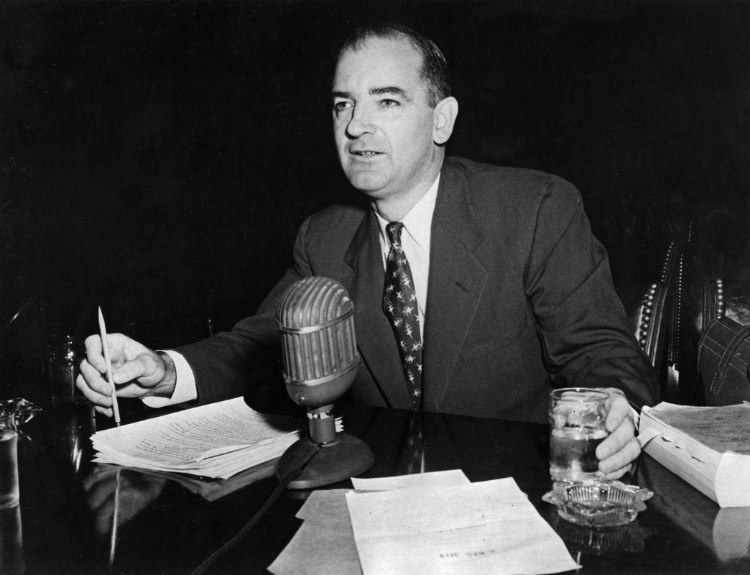
The term “McCarthyism” had originated during a period known as the Second Red Scare which lasted between 1950 and 1956. It was a time when there was an increased political repression of supposed communists and a campaign spreading fear among Americans. There were also allegations of them being spies and Soviet agents. McCarthyism was also encouraged by many conservative politicians who opposed child labor laws and women’s suffrage, claiming them to be communist plots. (source)
12 Machiavellian
Machiavellian refers to someone who uses cunning and deceit, and who is cynical about morality and expedient. Named after Niccolò Machiavelli who described such a behavior to be normal in politics in his famous work The Prince.
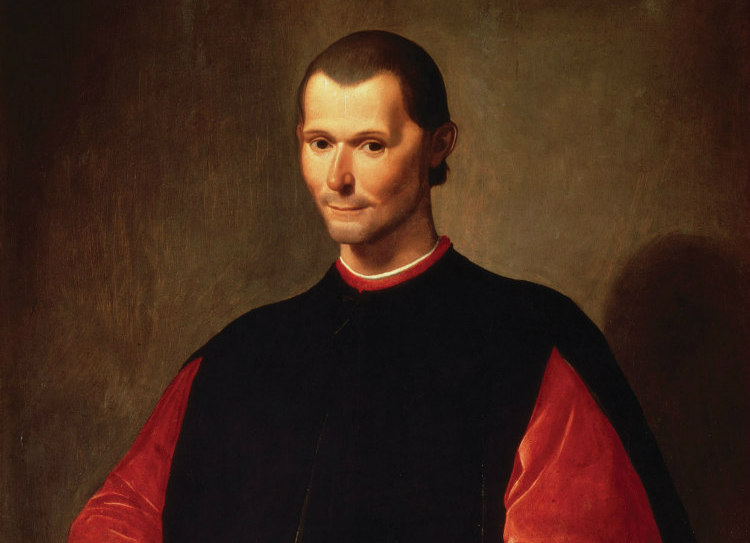
After the publication of The Prince, Machiavellianism was seen as something corrupting northern Europe politics during the 16th century. The St. Bartholomew’s Day massacre of 1572 in France was also thought to be a product of Machiavellianism. Though Machiavelli’s writings weren’t published in France before the massacre, the concept was seized by contemporaries and the term eventually came to have its current meaning. (source)














